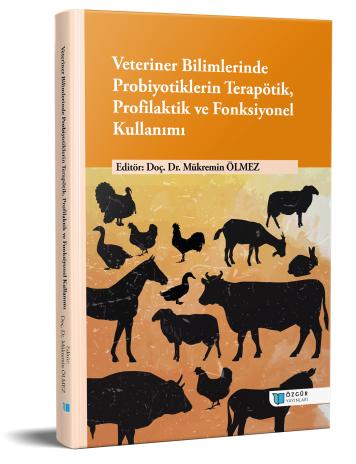
Protozoon Kaynaklı Enfeksiyonların Kontrolünde Probiyotikler
Şu kitabın bölümü:
Ölmez,
M.
(ed.)
2023.
Veteriner Bilimlerinde Probiyotiklerin Terapötik, Profilaktik ve Fonksiyonel Kullanımı.
Özet
Yeterli miktarda kullanıldıklarında konağa fayda sağlayan, canlı mikroorganizmalar olarak tanımlanan probiyotiklerin konak üzerindeki etkinlikleri, başta gastrointestinal hastalıklar olmak üzere birçok enfeksiyonun tedavisine yönelik çalışmalar ile kanıtlanmıştır. İyi bir probiyotiğin patojenik ve toksik olmaması yanı sıra konak üzerinde faydalı etkiye sahip olması gerekmektedir. Probiyotiklerin çiftlik hayvanlarında büyümeyi teşvik ettiği, yemden yararlanma oranını arttırdığı, konağı bağırsak enfeksiyonundan koruduğu ve bağışıklık tepkilerini uyardığı gösterilmiştir. Probiyotiklerin etkinlikleri daha çok bakteriyal ve viral hastalıklarla sınırlı olmakla beraber paraziter enfeksiyonların kontrolü için kullanımları son yıllarda artış göstermektedir. Özellikle hayvan modelleri ve in vitro kültür deneyleri kullanılarak yapılan araştırmalarda, sindirim sistemi protozoonlarına karşı faydalı oldukları gösterilmiştir. Ancak probiyotiklerin belirtilen faydalı etkilerine aracılık eden moleküler mekanizmaları tam olarak aydınlatılmamış olup birden fazla mekanizma yoluyla parazitlere karşı koruma sağlayabilecekleri gösterilmektedir.

